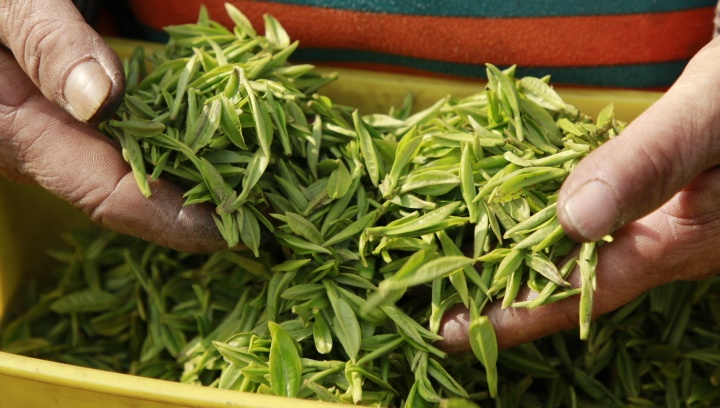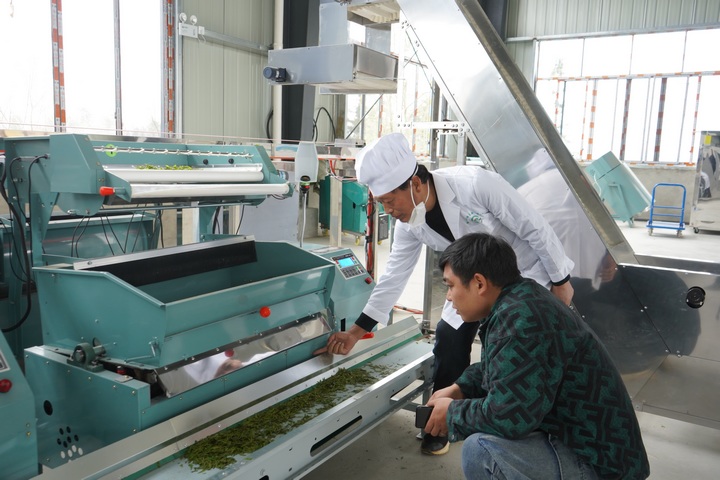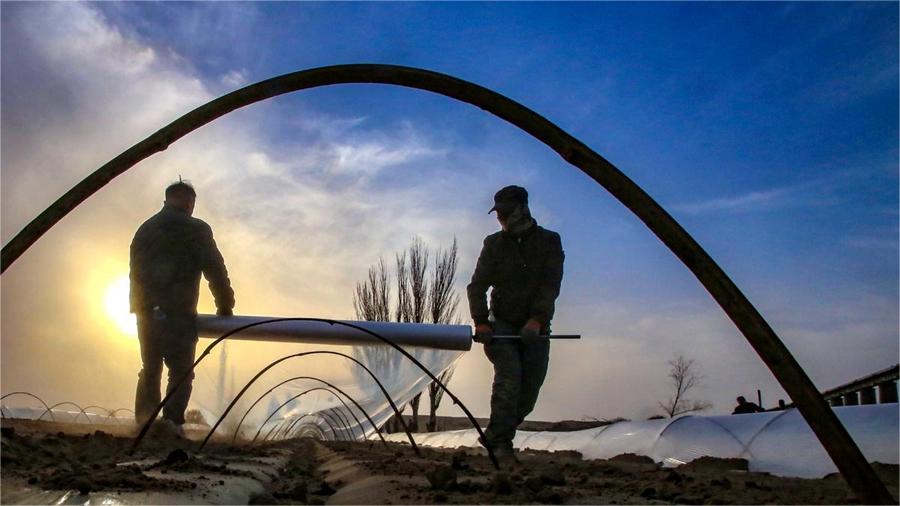Spring tea harvest underway in Jinsha, SW China's Guizhou
Jinsha county, located in the southwestern tea-growing region of China, features a complex geological structure, with rocky soil accounting for 35.1 percent of its total soil area.
This geographical environment gives rise to the slow growth of tea trees, the delicate nature of new shoots, and the rich concentration of beneficial components found in tea. Tea produced in this region is known for its exquisite fragrance, refreshing taste, smoothness, and ability to be steeped multiple times.

Photo shows a tea plantation in Jinsha county, Bijie city, southwest China's Guizhou Province. (Photo/Liao Qianjun)
The 160,000 mu (10,667 hectares) of tea gardens in Jinsha county, Bijie city, southwest China's Guizhou Province, have entered the peak picking season.
As various tea varieties enter their peak picking periods, the demand for labor gradually increases. Picking spring tea has become an important way for local residents to increase their incomes.

Farmers pick tea leaves at a tea plantation in Jinsha county, Bijie city, southwest China's Guizhou Province. (Photo/Huang Yuanhui)

Workers process tea leaves at a tea processing factory in Jinsha county, Bijie city, southwest China's Guizhou Province. (Photo/Liao Qianjun)
At dusk, tea farmers transported freshly picked tea leaves to a nearby processing factory to ensure the tea’s quality and freshness. The leaves underwent various processing steps, including withering, frying, rolling, fermenting, and drying.

Photo shows freshly picked tea leaves. (Photo/Cai Zhengling)
Wang Cheng, chairman of a tea company in Guizhou, said to ensure the quality of spring tea and timely processing, his company has established a tea processing workshop near the tea mountain.

Workers process tea leaves at a factory in Jinsha county, Bijie city, southwest China's Guizhou Province. (Photo/Huang Yuanhui)
At a tea processing factory in Changgou village, Mukong township, Jinsha county, the machines ran continuously while workers carried out their tasks. The factory was filled with the delightful aroma of tea.
"We currently purchase around 6,500 kilograms of fresh tea daily, which can be processed into over 1,500 kg of dried tea. As the large-scale harvesting of spring tea continues, the purchase and production volume will increase," said Zheng Jikui, deputy general manager of a tea company in Guizhou.
The company has received orders from various regions, including Zhejiang Province, Sichuan Province, Guangxi Zhuang Autonomous Region, Beijing, and Shandong Province.
Jinsha county is expected to harvest 8,500 tonnes of spring tea this year, with a total output value of 1.6 billion yuan ($ 221 million).
Photos
Related Stories
- In pics: spring tea harvest in various parts of China
- Tea picking robot operates in harvest season
- Farmers busy harvesting, processing Biluochun tea leaves in Suzhou
- Event promoting tea culture kicks off in Guangxi, south China
- Thriving tea industry injects vitality into town in Guangxi
- Tea farmers embrace spring harvest season in Fengjie County, SW China's Chongqing
Copyright © 2024 People's Daily Online. All Rights Reserved.









